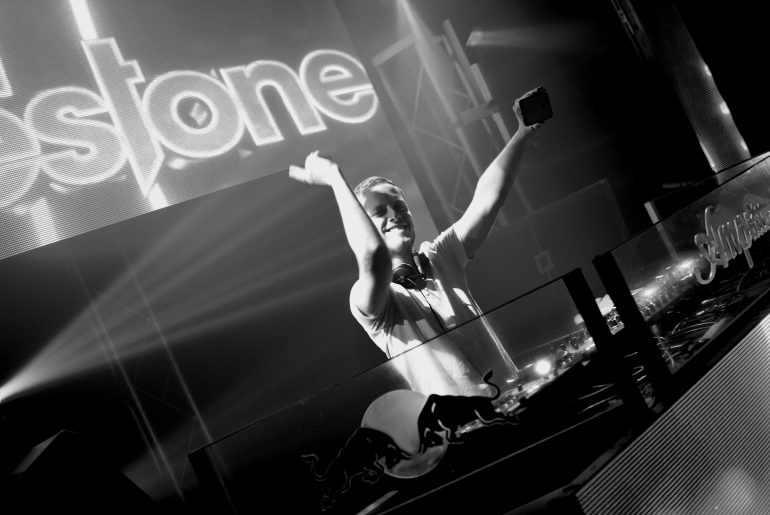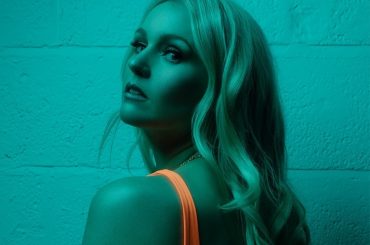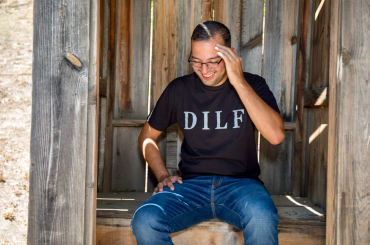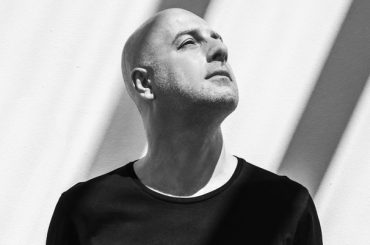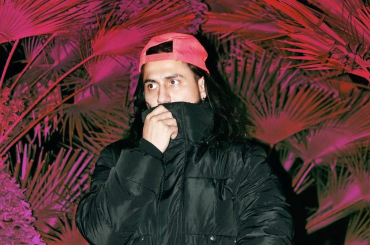As a producer, ilan Bluestone’s tracks have become cornerstones of sets by trance stars like Above & Beyond, Tiësto and Armin van Buuren. As a DJ, he’s played the most prestigious global clubs and festivals, like EDC Vegas.
The London-based Bluestone’s been an Anjunabeats artist since 2011 and, since then, his meticulously produced hits like “Big Ben,” “Cloudchaser,” “Under My Skin” (with Jerome Isma-ae), “Bonsai,” and “Spheres” have fired up mixshows and dancefloors alike. Now he’s back with Scars, his debut artist album, which includes standout tracks “Let Me Know” (feat. Giuseppe De Luca) and “Another Lover” (feat. Koven). Just after playing a winning set at Brooklyn’s Schimanski club, he connected with DJ Times.
DJ Times: What got you into DJing?
Bluestone: My brother got me into it. I was watching him DJ from a young age. It was very inspiring for me because I used to do the lights in the clubs for him. I always wanted to make music after that experience.
DJ Times: Did you have a traditional musical background?
Bluestone: I played the guitar and keyboard. I started making music when I was about 9 years old. I mostly played with Impulse Tracker, which was a piece of music-production software.
DJ Times: What’s your DJ set-up now?
Bluestone: I started off with [Native Instruments] Traktor and then moved on to [Pioneer] CDJs because of practicality and the ability to travel with just two USB sticks. The setup of CDJ Pioneers is the way forward.
DJ Times: For DJing, is there anything new that you’d like to see, technology-wise?
Bluestone: Yes, it’d be nice if CDJs had bigger screens to be able to see more options. The CDJ-TOUR1s have nice screens, but most clubs don’t carry them. I would love to have more control and improved displays.
DJ Times: Your favorite venues to play?
Bluestone: Madison Square Garden blew my mind [opening for Above & Beyond] – that was one for the books. I love Rebel, the club in Toronto. The crowd, lighted ceilings and sound system are all incredible. The Echostage in D.C. is also one of my favorites.
DJ Times: What are the basics of your studio set-up?
Bluestone: I currently use Ableton Live. I’ve got KRK, ADAM Audio, and Focal for studio monitors. I have Access Virus TI, a Behringer mixing desk, [Dave Smith Instruments] OB-6 synth and plug-ins. I love them all. There’s nothing better than working with real synthesizers.
DJ Times: Why full artist album now?
Bluestone: I wanted to do a full album because it’s something I haven’t done before. I’ve never had the opportunity to release one, and wanted to put my heart and soul into this album. My biggest hope is that Scars leaves an imprint on people. My goal is to hit people in all directions, even if they’re not into trance or EDM. Scars is kind of a harsh name, but it doesn’t necessarily signify bad scars. Sometimes people have scars that they receive from good things in life. I see scars as imprints of what’s happened in your life, something you’ll never forget.
DJ Times: What’s your music-making process?
Bluestone: I’ve been making music on the road for now, and finish in the studio once I get home. This last tour has been very helpful because I’ve been creating an album while playing to different crowds. I like to find ways to improve how tracks sound on the dancefloor.
DJ Times: To single out one track, can you explain the process behind “Another Lover”?
Bluestone: “Another Lover” started with the main drop. I had the drop before I had the surrounding beats and knew it needed a vocal. I wanted to take the song further. I collaborated with Koven in the studio, and we cranked out the main lead within about 24 hours. The whole track was completed within three days or so.
DJ Times: Generally, when you’re working with a vocalist, what’s that process?
Bluestone: For my last few tracks, especially with Giuseppe [De Luca] and Koven, I listened to what they had in mind before finishing the record. I usually start with melodies and concepts, and try to feel what the other artist wants. We’ll sit down, maybe have a few vocals or lines that could work with the track, and give my input. It’s quite a complicated process to actually write a track; it’s not just A-B-C. I’m more of the melodic person in collaborations, so I will write the melody and see how my sound makes the vocalist feel. If he or she feels that it needs a top line singing chorus, then I’ll let him do what he feels, but we constantly feed off each other. For example, I sent Koven the demo and she really felt the track right away. She sent vocals back and I felt immediate goosebumps.
DJ Times: Which producers impress you?
Bluestone: Well, Above & Beyond have obviously always been one step ahead of everyone in production. The way they make their songs sound is really amazing. Jerome Isma-ae, a good friend of mine, has always been on another level, too, with his incredible and simplistic, yet effective production.
DJ Times: Why does trance maintain such a hold over its fanbase?
Bluestone: Listen, trance has been around for ages. It’s been around since the early ’80s, even the late ’70s, just in different styles. Trance doesn’t just consist of a kick drum and bass made electronically – trance is an expression of how you feel when you listen to music. It doesn’t mean it’s just a genre. Trance is music that takes you to the next place when your close your eyes. I think a lot of people can connect to trance because it is such a diverse genre with lots of sub-genres within it. Trance fans are very loyal. They’ve always been there for the community, and I think it’s only getting bigger. I’ve seen it grow – it’s amazing.
DJ Times: Advice for young DJ/producers?
Bluestone: Keep going and never give up. I’ve been making music since I was 9 – I’m 32 now. I haven’t stopped and never will. I feel that even as an artist myself, my production is getting better and there are always new ways of learning. Take criticism from other artists and don’t get offended by other people telling you stuff which may offend you – just take it with a grain of salt. Always experiment and find ways of making your sound better – be open. Don’t take the genre and alienate yourself – be open to listening to other music. Don’t hate entire genres because you’re never going to learn. If you listen to dubstep, trap, bass, jungle, drum-n-bass, you’re always going to find something from a music production side of things. I listen to a lot of bass artists and think there’s a lot of appealing sounds that cut through and sound great in a club. That’s what fascinates me as a music producer. There’s always something new to learn.


